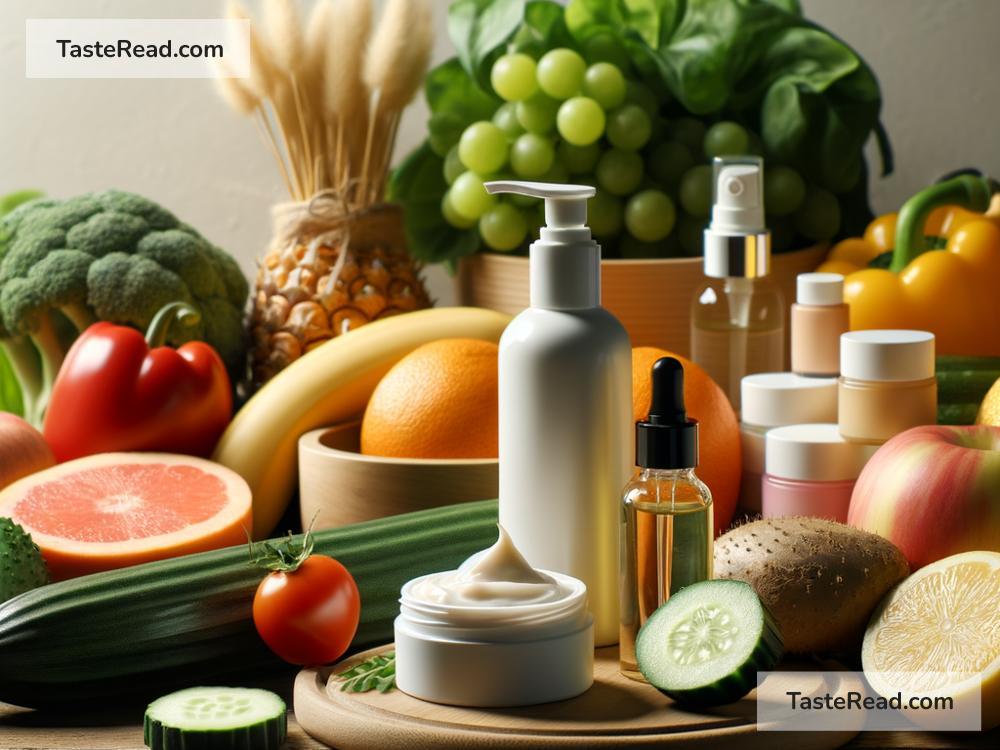Understanding the Connection Between Diet and Skin Conditions
Have you ever wondered why your skin looks dull, dry, or irritated when you eat certain foods? Or do you feel like your breakouts flare up after eating sugary treats? You’re not alone! Many people experience a direct link between what they eat and how their skin looks and feels. In simple terms, the food you’re putting on your plate can affect the health of your skin. Let’s explore the connection between diet and skin conditions, and how you can make better food choices to achieve glowing, healthy skin.
What Is the Role of Your Diet in Skin Health?
Your skin is the largest organ of your body, and it reflects what’s going on inside. Eating a balanced diet doesn’t just impact your physical health—it can also directly affect your skin. Certain foods can trigger inflammation, cause dehydration, or even worsen existing skin conditions like acne, eczema, or psoriasis. On the flip side, a nutrient-rich diet can help repair damage, reduce irritation, and keep your skin looking youthful.
Simply put, what you eat can either help or harm your skin.
Common Skin Conditions Linked to Diet
Let’s look at some skin conditions that are often affected by diet:
- Acne: Acne is one of the most common skin issues that people face. Although hormones and genetics play a big role, your diet can also make a difference. Foods high in sugar and refined carbs, like cakes, cookies, and white bread, can spike your blood sugar levels and increase the production of certain hormones. These hormones, in turn, can boost oil production in your skin, leading to clogged pores and breakouts.
On the other hand, eating more fruits, vegetables, and healthy fats (like those found in nuts and avocados) may help reduce inflammation and keep your skin clearer.
-
Eczema: Eczema is a skin condition that causes redness, itching, and dry patches. While the exact causes aren’t fully understood, some people find certain foods, such as dairy products or gluten, make their symptoms worse. Additionally, poor hydration can aggravate eczema, so drinking plenty of water is key to keeping your skin hydrated.
-
Psoriasis: Psoriasis is an autoimmune skin condition that leads to scaly, itchy patches on the skin. Because it’s linked to inflammation, eating foods that fight inflammation can be helpful. Fatty fish (like salmon), leafy greens, and berries are great choices. In contrast, processed foods, red meat, and alcohol may worsen symptoms.
-
Skin Aging: Fine lines, wrinkles, and sagging skin are natural signs of aging, but your diet can impact how quickly these changes appear. Foods rich in antioxidants—such as colorful fruits and vegetables—help protect your skin from damage caused by free radicals. Additionally, foods high in sugar can speed up the aging process by breaking down your skin’s collagen, a protein that keeps your skin firm.
Foods to Avoid for Better Skin
If you’re looking to improve your skin, it’s important to avoid or limit foods that can irritate or harm your skin over time. Some of the main culprits include:
- Sugary Foods: Candy, sodas, baked goods, and even fruit juices can quickly increase your blood sugar, leading to inflammation and breakouts.
- Processed Foods: Chips, crackers, fast food, and frozen meals often contain unhealthy fats, high amounts of salt, and preservatives that may contribute to skin problems.
- Alcohol: Alcohol is dehydrating and can make your skin look tired and dry over time.
- Dairy Products: While dairy doesn’t affect everyone, some people find that it triggers acne or worsens skin irritation.
Foods to Promote Healthy Skin
The good news is there are plenty of delicious foods that can help your skin thrive. Here are a few:
-
Fruits and Vegetables: Brightly colored fruits and vegetables like carrots, spinach, blueberries, and oranges provide your skin with antioxidants and vitamins, such as vitamin C and beta-carotene, that help improve its elasticity and brightness.
-
Fatty Fish: Omega-3 fatty acids found in fish such as salmon and mackerel help reduce inflammation and keep your skin hydrated.
-
Nuts and Seeds: Almonds, walnuts, sunflower seeds, and chia seeds are packed with vitamin E, which can protect your skin from damage and keep it smooth.
-
Whole Grains: Unlike refined grains, whole grains like brown rice and quinoa are rich in nutrients that stabilize your blood sugar and reduce skin issues.
-
Water: It might not be a “food,” but staying hydrated is essential for healthy skin. Drink plenty of water throughout the day to keep your skin glowing and supple.
Small Changes, Big Results
Improving your skin doesn’t mean you have to completely change how you eat overnight. Start small by adding nutrient-rich foods to your meals and cutting back on sugary or processed items. Over time, these small changes will add up.
For example, you could swap soda for water, replace chips with carrot sticks, or try a fruit salad for dessert instead of cookies. These little tweaks can make a big difference in your overall skin health.
Final Thoughts
Your diet plays an important role in how your skin looks and feels. By understanding the connection between food and skin, you can make thoughtful choices to improve your complexion and minimize skin conditions like acne, eczema, and psoriasis. Eating more fruits, vegetables, healthy fats, and whole grains—and drinking lots of water—is a simple yet effective way to promote healthy skin.
In the end, glowing skin starts from within. So, next time you’re choosing what to eat, think of it as an opportunity to nourish your skin!


